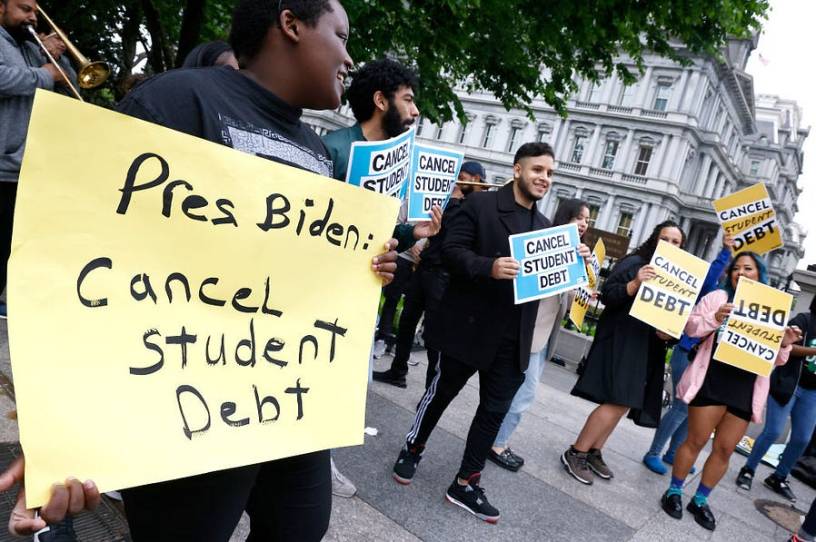Student Loan Forgiveness Raises Emergency Powers Questions

When President Joe Biden said Wednesday that he would wipe out hundreds of billions of Americans’ college debt—$10,000 for every debt holder making less than $125,000 a year, $20,000 if the holder had attended college on Pell Grants—most critics focused on the move’s arbitrariness, naked constituency-fluffing, and economic regressiveness. But some also found time to deride Biden’s seemingly ludicrous justification for why he had the statutory authority to make the move in the first place: a post-9/11 law giving the White House authority to reduce the student debt of those who “suffered direct economic hardship as a direct result of a war or other military operation or national emergency.” The national emergency in question, Team Biden argued, is the ongoing COVID-19 pandemic.
A flimsy, backfilled fig-leaf justification? Sure. But don’t assume that means it won’t hold up in court. The reality is that the president’s emergency powers are significantly broader than you’d likely expect.
Under current law, as soon as a president declares a particular state of affairs a national emergency, he unlocks for himself remarkable powers to act without the consent of Congress in a host of different policy areas. These powers—136 in all, cobbled together in a heap of different congressional acts over the years—are wide-ranging and frequently vague in their limitations. They mostly amount to giving the president permission to suspend or alter the ordinary function of various federal laws.
It’s easy to see why such mechanisms exist: Legislating can be sluggish, and in times of real crisis the national interest often demands that the executive be able to act quickly and decisively. But no law sets what the parameters of such an emergency must be. A national emergency is what the president says it is, lasts as long as he says it lasts, and only a veto-surmounting two-thirds vote in both houses of Congress can overrule one. The only real limit is the scale of the president’s own hubris.